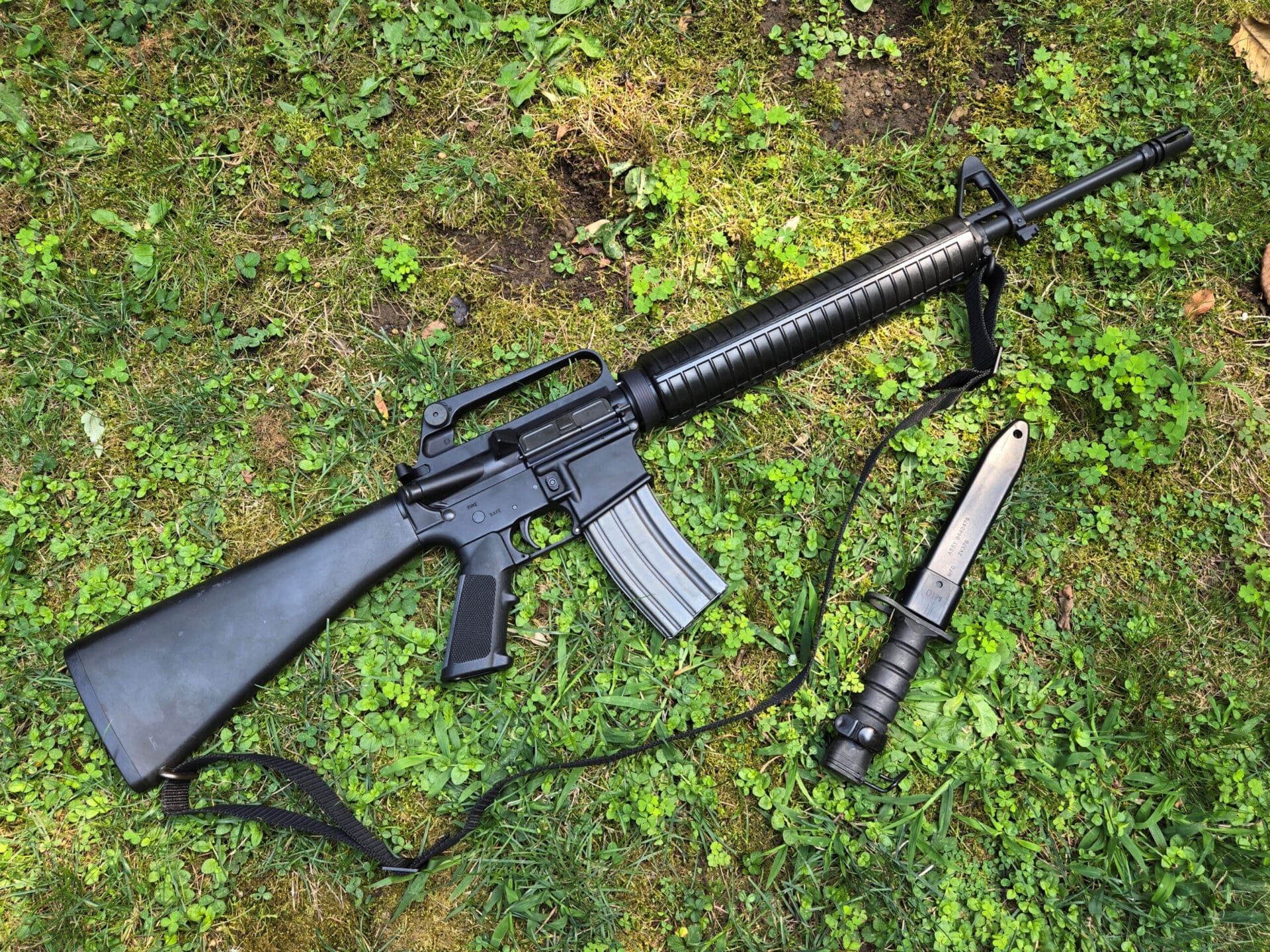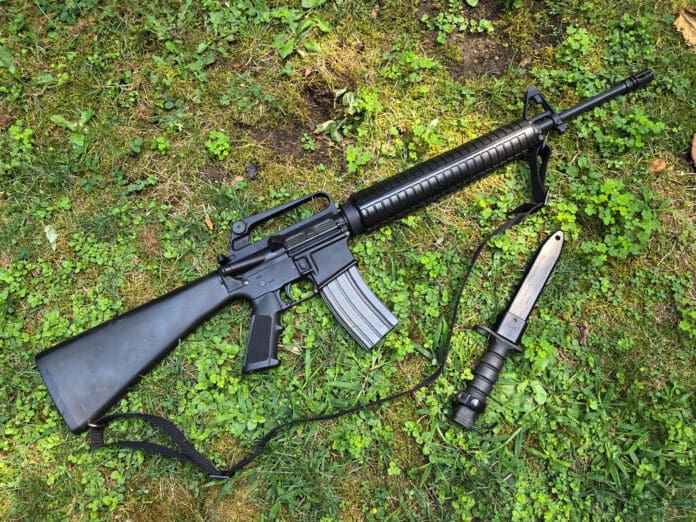
Back in the early 90’s I was still in the Army Reserve. I was assigned to the Headquarters Company of a Military Intelligence Battalion, and I helped out on the arms room. We were still issued M16A1s at that point, and had sent some rifles back for depot maintenance. What came back was neither A1 nor A2, and is the start of this story, and the start of how I accidentally made a Colt clone.
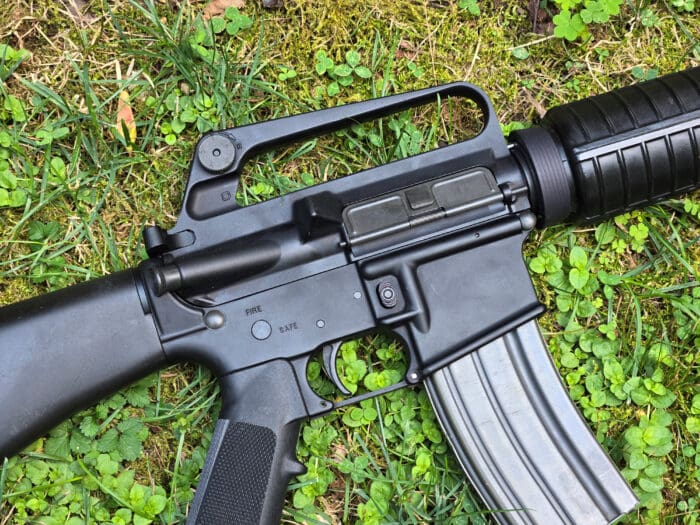
The M16A1.5
When I came in for my drill weekend, my supply sergeant called me in to the arms room to show me what came back from the depot. I forget how many there were, but it was only a handful. They were our original M16A1 lowers that we’d sent out, but they were now fitted with A2 stocks and had a C7 style upper. For the folks who don’t know, the C7 upper was what Canada went with instead of the A2 upper on their issue rifles. It’s essentially an A1 upper, using the A1 style rear sight, but with the “Brunton Bump” brass deflector block. The M16’s were still fitted with a 20-inch pencil barrel as well.
This was the first time I had even seen a C7 upper on a U.S. rifle. Years later I found out that they were used on Colt 733 carbines that famously saw use with Delta Force, but I had never seen one on an M16A1 before. Since that time I’ve talked to other guys who served in the Reserves and Guard around the same time frame. A number of them also saw similar upgrades on guns coming back from the depot. Although it was never an official variation as far as I can find, it apparently wasn’t an entirely uncommon rebuild.
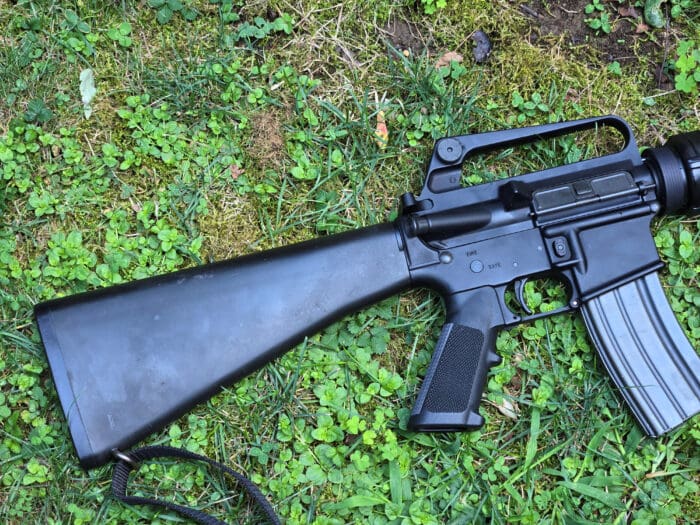

The stock upgrades made some sense. The old A1 handguards were prone to breakage, and by the late 80’s and early 90’s it probably made sens to just start swapping things out with A2 furniture, rather than to keep sourcing old A1 parts.
The upper receiver surprised me though. I’m not sure what the line of thought was to change from an A1 to a C7 upper. Uppers aren’t generally a part that wears out and need replaced often, so I assume the replacement was a purposeful decision. Especially since they all came back that way. I would have thought if they felt the need to update them the depot would have have just used an A2 upper. The same for the barrel. Why not just put an A2 profile barrel on? My only thought was that A2 parts were primarily going to full A2 builds at this point, and these were what was available to the arsenals for rebuilds.
Whatever the reasoning was, I actually liked the setup. I always preferred the pencil barrel of the A1 to the heavier government profile A2. And functionally, I think the Canadians got it right with the C7 upper. You get the brass deflector block, but maintain the simpler, more rugged A1 sights.
Although I like the look of the A1 triangular handguards, the A2’s were generally sturdier, and easier to swap out since they were symmetrical. You see similar handguard updates done to M16A1s in use in Israel and the Philippines. I personally prefer an A1 length stock to the longer A2, but I can see why they went that direction.
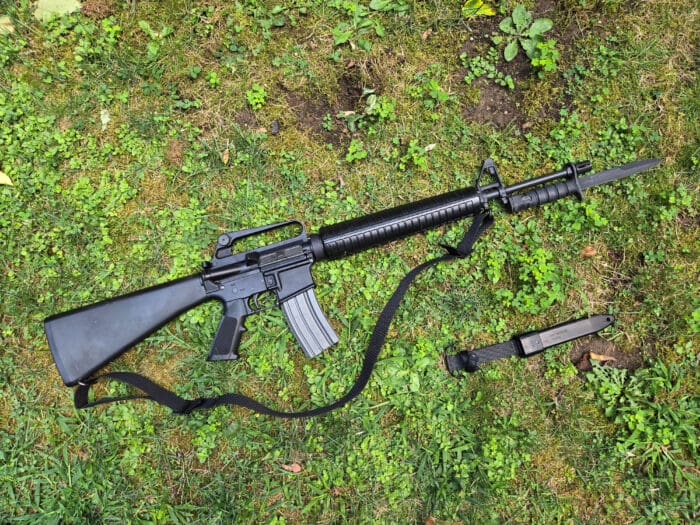

The Build Details
In recent years I had been thinking about building a clone like those oddball hybrids that popped up in our arms room. I got a little sidetracked on my last build and ended up with a rifle that was a mix of this and a Canadian C7A2. I ended up getting another C7 upper along with a 20-inch pencil barrel from Luth AR recently though and decided to finally put one together.
I had a set of surplus A2 handguards and buttstock on hand already, as well as a fat A2 pistol grip, so I was covered as far as stocks go. I picked up the Luth AR C7 upper that was finished off with their rear sight assembly, forward assist and ejection port cover. Although not on our old issue guns, I opted to add a Rapidex Index Knob to my rear sight. The Rapidex knob makes rear sight adjustments easy, without having the complexity of the A2 sight.
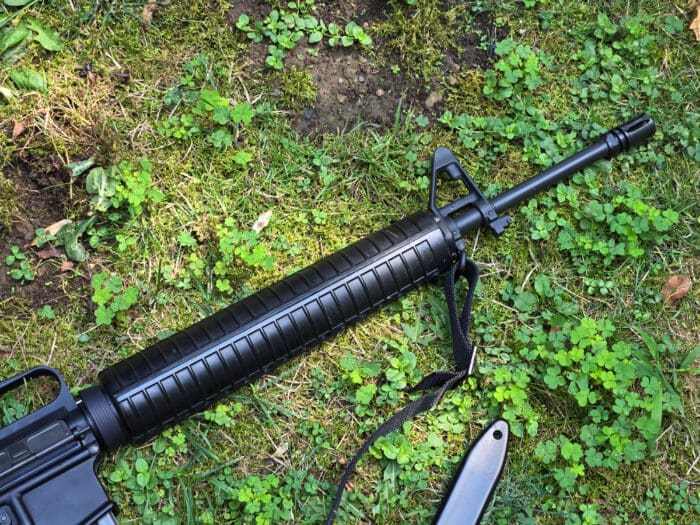

The Luth AR barrel I used is a 1-7 twist, chrome lined, with the correct non F marked front sight base. Now, I wish I would have paid closer attention to those rifles that we got back from the depot. I wasn’t issued one, so only looked at them briefly when they came in. I’m not sure if they were still using 1-12 twist barrels, or if they actually had a 1-7 pencil weight barrel. Or if they used A1 or A2 flash hiders. Either way, for my build I decided to go 1-7 with an A2 flash hider.
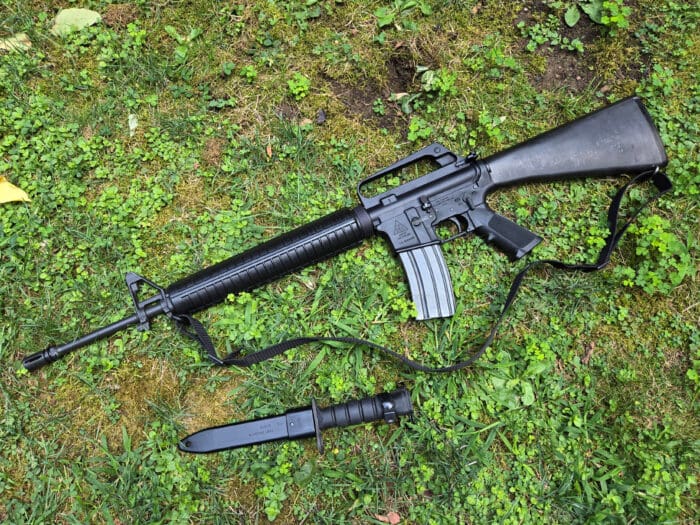

When it came time for a lower, my gut was to get an M16A1 marked lower from Harrington & Richardson. Then I looked at my pile of parts and decided to just use a lower I already had. My donor lower was an old Del-Ton A2 profile lower with a Rock River match trigger in it. I’d used it on a carbine build when the Clinton Assault Weapons Ban expired, then moved it over to my M16A4 clone build. When I got an M16A4 marked lower, I put it in my parts bin and it’s just been sitting waiting for a build. It’s A2, and not M16 marked, but it’s fairly discreetly marked so I figured it would work.
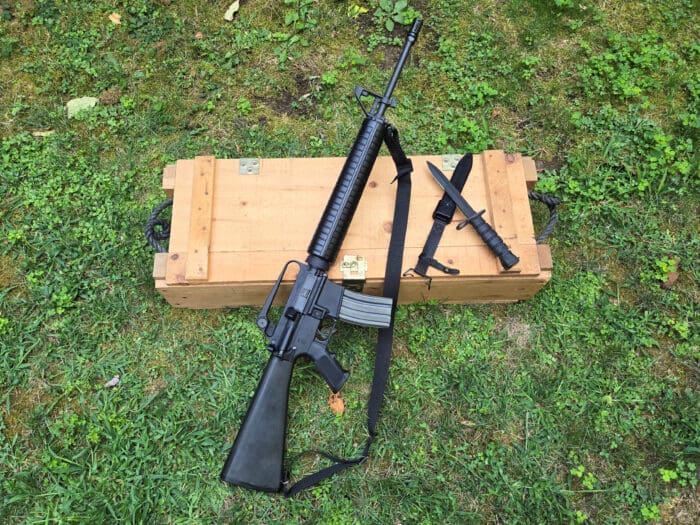

The Accidental Colt 711 Clone
While the A2 lower was not technically correct for my old arms room rifle clone, I realized that Colt actually did make a rifle in this configuration, the Model 711. The 711 was an export version of the M16A2. Colt being Colt, they used up what parts they had, and often had some unusual variations. The 711 used an A2 lower with either an A1 or C7 upper. It had a 20-inch pencil barrel with a 1-7 twist and A2 furniture. They also still had full-auto capability, rather than the three-round burst of U.S. M16A2s. And just like our reworked M16A1’s still had.
Our refurb A1s may not have technically been Colt 711s, but they certainly checked most of those boxes. My parts bin clone ended up an accidental 711 clone, and that’s okay. It’s pretty close to the rifles we had in the armory, and the 711 is a pretty interesting export variation in its own right. It’s a light, handy full-sized rifle, and one I wouldn’t have minded being issued in the least. About the only change I might have made to it was using the CS marked short A1 length A2 style stock that the Canadians used on their C7. Being that those are tough to find, I think I’ll leave mine in the accidental 711 configuration.
Read full article here

